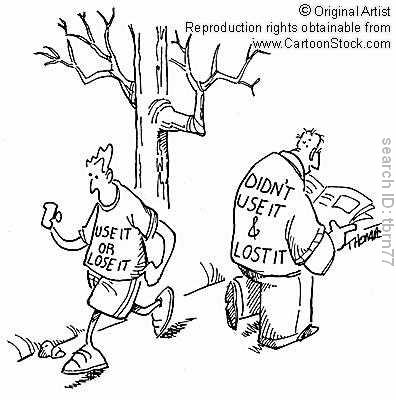My personal theory of learning is that all students can be successful in a physical education class with the proper stimuli and feedback. This personal theory of learning guides me throughout the instruction of my classroom, and allows me to view myself as a behaviorist because of the way I attempt to meet the individual needs of my students based on the various stimuli that are presented by me in a physical education setting. Successful learning in a physical education setting is directly correlated to visual learning plus positive and negative feedback from the instructor.
In my healthy living and conditioning class, I have recently discovered that students will give me a better workout if they are listening to their music of choice. This allows me to integrate technology into my classroom by letting students use their ipods and mp3 players as motivational tools. This also keeps them focused on the task at hand instead of becoming distracted and falling short of their goals. “A reward includes all positive, negative, or neutral reinforcement to a behavior” (Lever-Duffy, J. & McDonald, J. 2008). I truly believe that this positive and negative reinforcement in my classroom has helped my students to achieve healthy skills.
In the future I would like to enhance my classroom through the use of technology by incorporating Voice Thread and blogging. These are two tools I became more accustomed with throughout this course and saw the benefits of project based learning they would provide in my classroom. Students could interact on an intellectual level about course material, rather than just in a physical way often associated with P.E.
Two long terms goals I have for my students and myself simultaneously is to continue to assign academic work tied in with technology outside of class to make them more well rounded, and for me to stay current with the times in order to do this. Physical education does not have to end at the door with a rigorous activity, but can carry over into 21 century tools and intellectually based projects designed to help students think about their minds and bodies as a whole.
Lever-Duffy, J. & McDonald, J. (2008). Theoretical Foundations (Laureate Education, Inc.,
custom ed.). Boston, MA: Pearson Education, Inc.
Sunday, April 25, 2010
Thursday, April 1, 2010
Subscribe to:
Posts (Atom)

